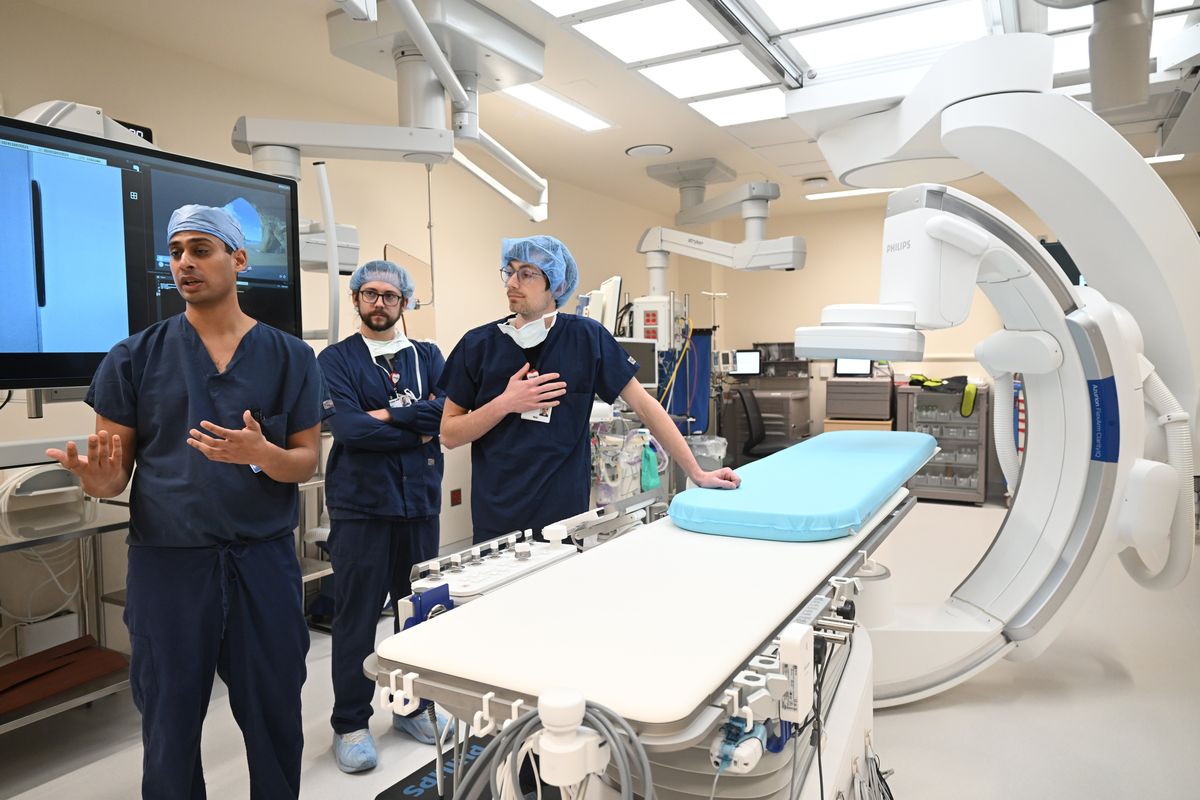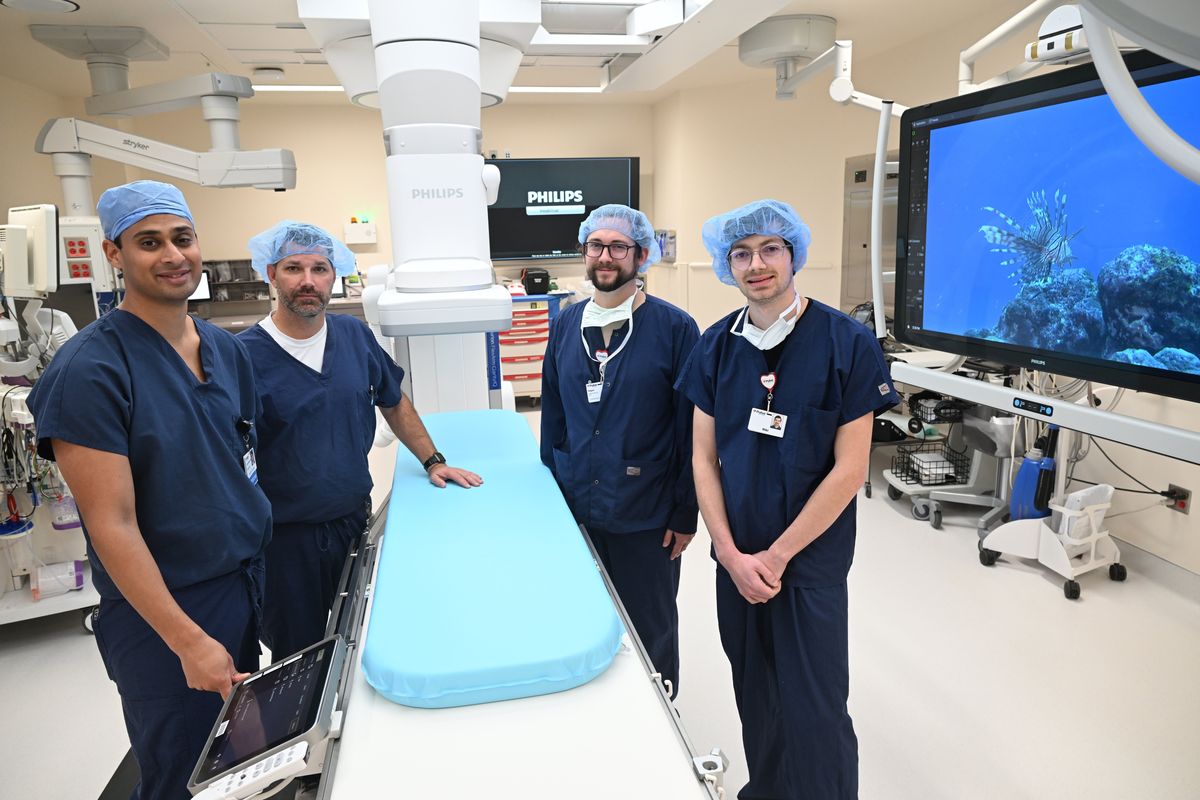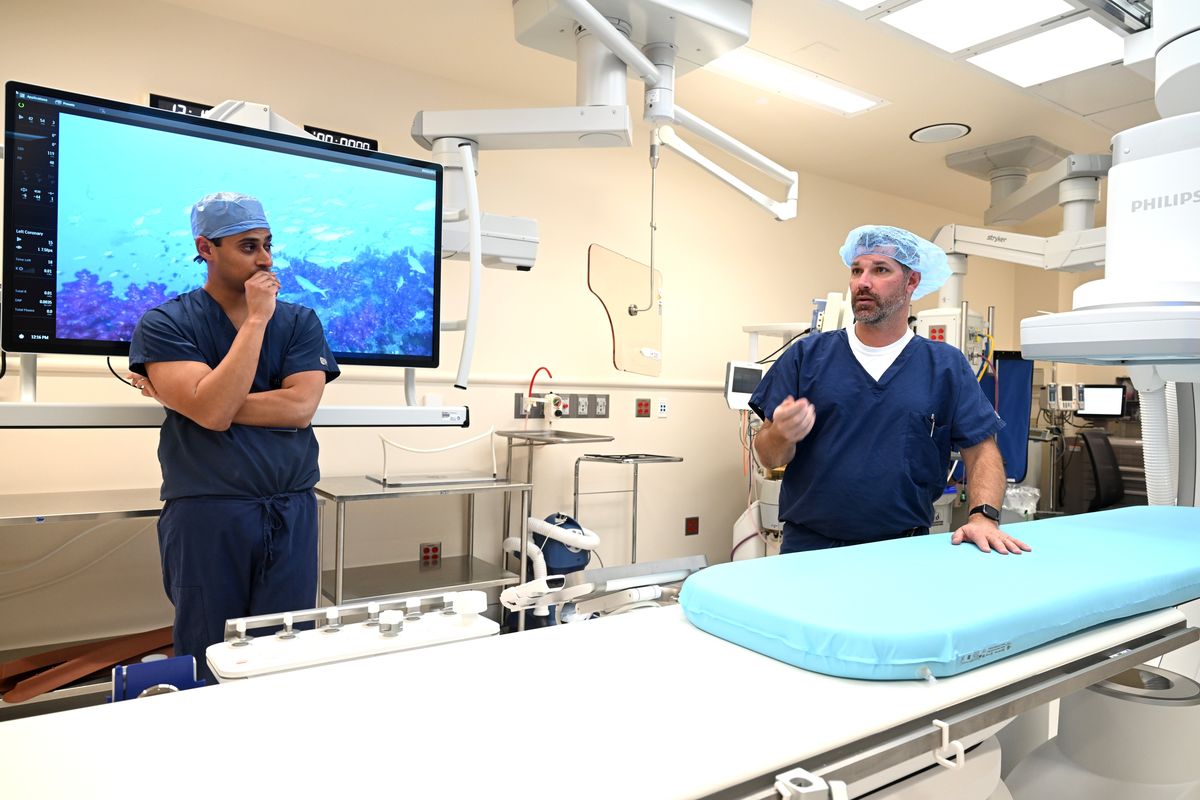Deaconess’ new hybrid room set to improve heart surgeries for MultiCare patients in Spokane
From left, vascular surgeon Dr. Jaideep Das Gupta, Catheter Lab Manager Brian Watson, technicians Kegan Orpin and Niki Johnson stand in the newest catheter lab Wednesday at Deaconess Medical Center where the latest technology allows for catheter procedures and enhanced imaging for a wide variety of procedures. The technology for frequent real-time imaging of patients while on the table is as advanced as any other lab on the west coast, according to Dr. Das Gupta. (Jesse Tinsley/The Spokesman-Review)
Deaconess Hospital’s new hybrid room gives surgeons a good look into your heart before they operate, helping them figure out the least invasive method to treat patients.
Vascular surgeon Dr. Jaideep Das Gupta claimed the surgical room was one of the “most advanced in North America.” The 360-degree imaging precision the Phillips Azurion 7M20 provides will make recovery easier by removing the need for a full open-heart surgery, he said.
“Ten or 15 years ago, we would have to do these big, open-heart surgeries. And that’s a lot for a patient. They have to sit in a hospital for seven-plus days. There’s an increased risk of complications,” he said. “Now with this hybrid room, we did minimally invasive surgeries for complex aneurysm, and the patient was discharged two days later.”
All kinds of heart and vascular surgeries will take place in the room. This includes simple endovascular angiograms, stents, transcatheter aortic valve replacements and complex interventions related to aneurysms. Treatment of these aortic aneurisms would have previously required open-heart surgery at Deaconess, but now can be much less invasive.
The hybrid room has brought Deaconess up to par with other hospitals like Providence Sacred Heart Medical Center, although Das Gupta argues their state-of-the-art technology is more advanced than others’ in the region.
The large device mounted to the ceiling can be rotated all across the patient’s body to precisely discover where every artery and valve is so that only very small cuts need to be made.
“It takes us from doing a surgery to just a procedure,” lab manager Brian Watson said.
Heart surgery is like finding a needle in a haystack, he added.
“With this room, we’re really cutting down the haystack by three quarters. We find what we need so much quicker, rather than having to just keep fishing around,” Watson said.
The space is called a hybrid room because it allows the imaging and the procedure or surgery to happen right after one another. Previously, many patients would do their imaging and surgery on separate days.
Watson called the room a “one-stop shop” for heart surgeries.
The hybrid room also does not rely on large amounts of contrast that previously exposed surgery patients to high levels of radiations.
“Now I know where the kidney arteries are, so we don’t have to do any contrast runs. Everything is able to be visualized directly,” Das Gupta said. According to the surgeon, patients will only be exposed to 25% of the radiation they would have experienced before.
The new hybrid room opened last week, and already half a dozen procedures and surgeries have been conducted there. Deaconess expects to use the room every day for procedures scheduled out months at a time and emergency heart surgery.
MultiCare declined to state how much it cost the hospital system to create the hybrid room, which has been planned for more than two years. Patient costs for individual procedures can vary, but Watson said being able to do imagery and surgery at the same time could lower some expenses.
The hospital previously outsourced some of the more complicated heart surgeries to hospitals on the west side of the state that had access to a hybrid room. That is no longer something MultiCare intends to do.
“We’re not shipping anybody anywhere. Our goal is to do them here. I think patients benefit from that, because they don’t want to go to Seattle for surgery if they’re in rural Washington, rural Idaho. They want to do the procedures here with family close by,” Das Gupta said.



